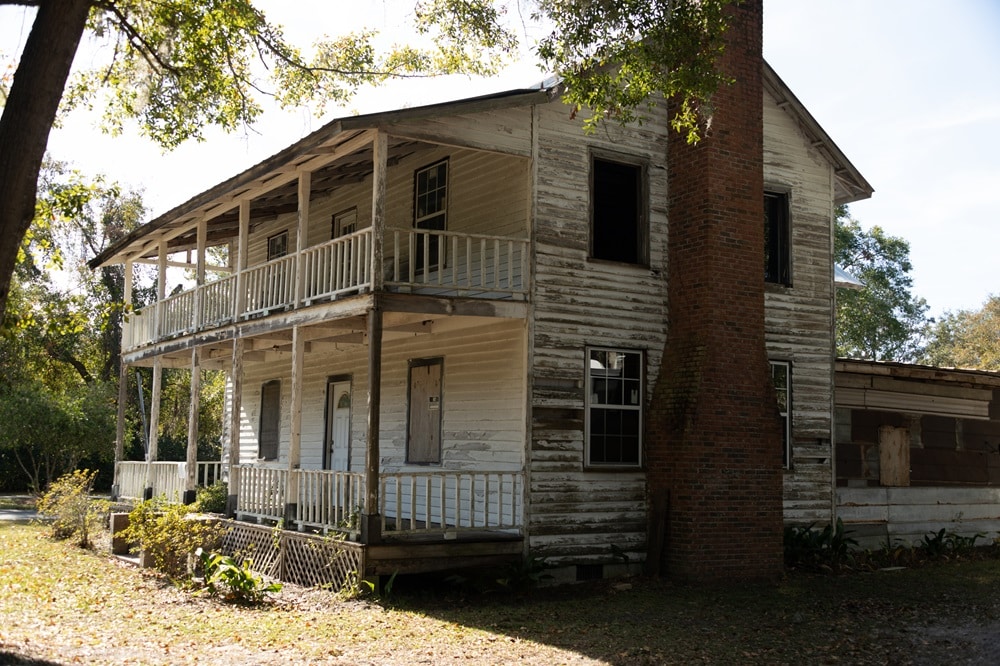Owning a home or building comes with many responsibilities. The biggest can be maintaining the property’s structural integrity. Over time, the inevitable wear and tear can lead to a crucial decision: should you demolish the structure and start new, or invest in repairing it? This dilemma is particularly significant for homeowners, building owners, and real estate investors who must weigh the pros and cons of each option.
In this blog post, we’ll explore the factors to consider before making this critical decision, outline the demolition process, and provide guidance on how to make an informed choice. By the end of this article, you’ll have a clearer understanding of whether demolition or repair is the best course of action for your property.
Factors to Consider Before Making the Decision to Demolish or Repair
Age and Condition of the Property
The age and current condition of your property are primary factors in deciding whether to demolish or repair. Older buildings may have outdated systems, materials that no longer meet safety standards, and structural issues that could be costly to fix. On the other hand, newer buildings may only require minor repairs to restore their functionality and appearance.
Cost Analysis of Both Options
Financial considerations are often at the forefront of this decision. Conducting a thorough cost analysis of both demolition and repair can help you determine the more economical choice. Here are some points to consider:
- Repair Costs: Assess the cost of materials, labor, permits, and any unexpected expenses that may arise during the repair process.
- Demolition Costs: Factor in the cost of demolishing the existing structure, removing debris, and preparing the site for new construction.
- Long-term Investment: Consider the long-term financial benefits of each option. While repairs may be cheaper initially, a new build could offer greater returns on investment through improved energy efficiency, modern design, and increased property value.
Environmental Impact
The environmental impact of your decision cannot be overlooked. Repairing a building can be more sustainable as it minimizes waste and preserves existing materials. However, if the structure is beyond repair, a new build can incorporate sustainable materials and energy-efficient systems that reduce the property’s overall carbon footprint.
The Demolition Process
If you decide that demolition is the best option, it’s essential to understand the steps involved and the environmental and community considerations that come with it.
Steps Involved in Demolishing a Home or Building
- Planning and Permits: Before any demolition work begins, you’ll need to obtain the necessary permits from local authorities. This ensures that the demolition complies with zoning laws and safety regulations.
- Asbestos and Hazardous Material Removal: Older buildings may contain hazardous materials like asbestos, which must be safely removed by professionals before demolition can proceed.
- Utility Disconnections: Ensure all utilities (water, gas, electricity) are disconnected to prevent accidents during the demolition process.
- Demolition: The actual demolition can be carried out using various methods, such as mechanical demolition with heavy machinery or deconstruction, where the building is taken apart piece by piece to salvage valuable materials.
- Debris Removal and Site Preparation: After the structure is demolished, the debris must be cleared, and the site prepared for new construction.
Environmental and Community Considerations
Demolition can have significant environmental and community impacts. It’s important to:
- Minimize Waste: Recycle and salvage as many materials as possible to reduce landfill waste.
- Protect Local Ecosystems: Ensure that the demolition process does not harm local wildlife or ecosystems.
- Communicate with the Community: Inform neighbors and local authorities about the demolition schedule to minimize disruptions and address any concerns.
Making the Decision
Weighing the factors outlined above can help you make an informed decision about whether to demolish or repair your property. Consider the following steps:
- Conduct a Thorough Inspection: Hire a professional to assess the property’s condition and provide a detailed report on the necessary repairs or potential challenges of demolition.
- Perform a Cost-Benefit Analysis: Compare the costs and benefits of both options, taking into account short-term expenses and long-term returns on investment.
- Assess Environmental Impact: Consider the environmental impact of each option and choose the one that aligns with your sustainability goals.
- Seek Professional Advice: Consult with architects, contractors, and real estate professionals to gain expert insights and recommendations.
Professional advice can be invaluable in making this decision. Architects can help you design a new build that meets modern standards and sustainability goals, while contractors can provide accurate cost estimates for both demolition and repair. Real estate professionals can offer insights into the potential market value of the property after renovation or reconstruction.
Deciding whether to demolish or repair a home or building is a complex process that requires careful consideration of various factors, including the property’s age and condition, cost analysis, environmental impact, and the potential benefits of each option. By conducting a thorough assessment and seeking professional advice, you can make an informed decision that aligns with your financial goals and sustainability values.
Are you facing the dilemma of whether to demolish or repair your property? Share your experiences and insights in the comments below, or reach out to our team of experts for personalized advice. Together, we can help you make the best decision for your home or building.
Feel free to contact the team at Bartlett Excavation in Central Oregon for a consultation. We can help you explore the best options for your property. You can reach us by phone at 541.447.3301 or by email at jake@ bartlettexcavation.com.

